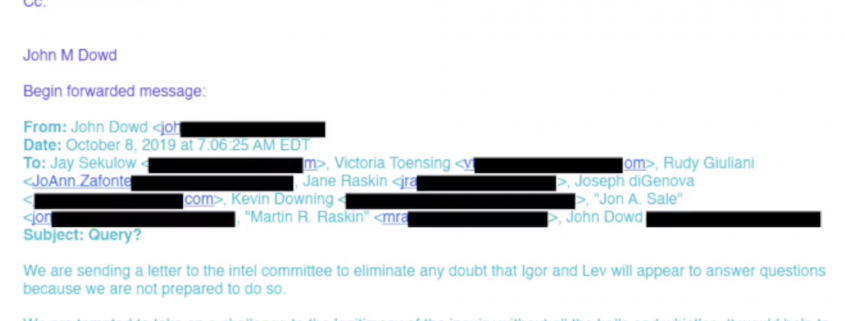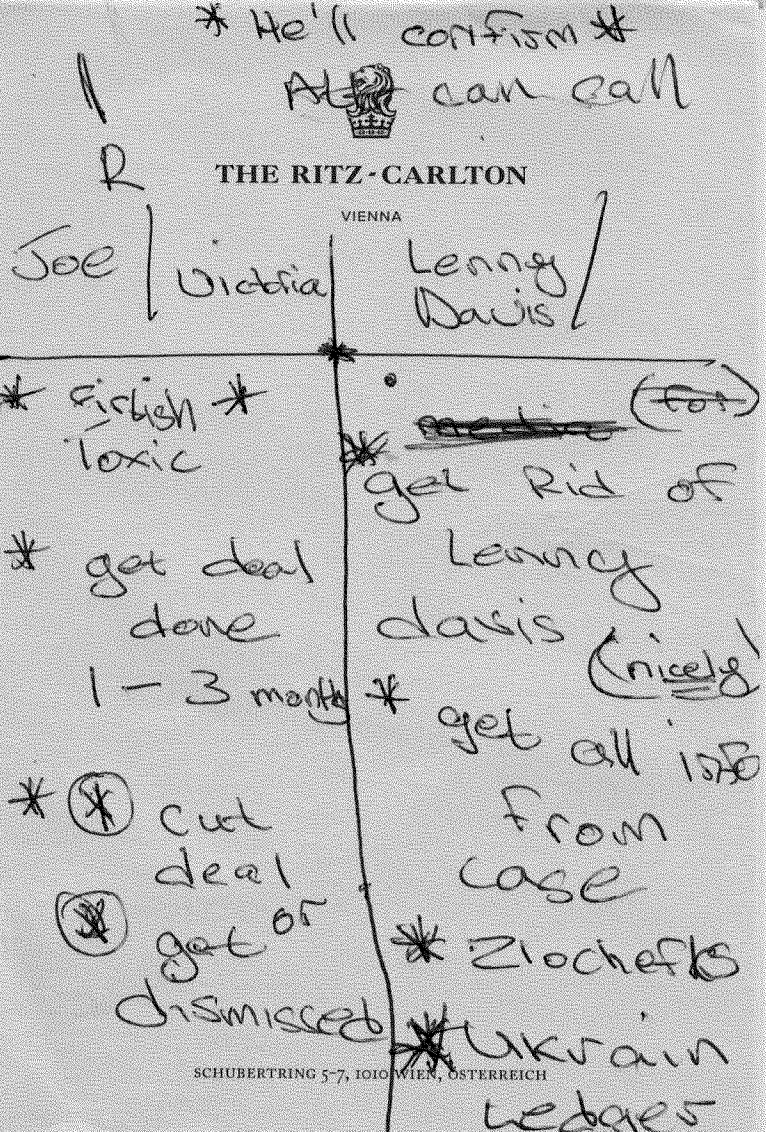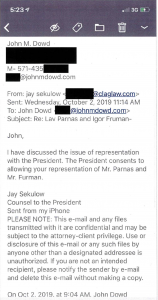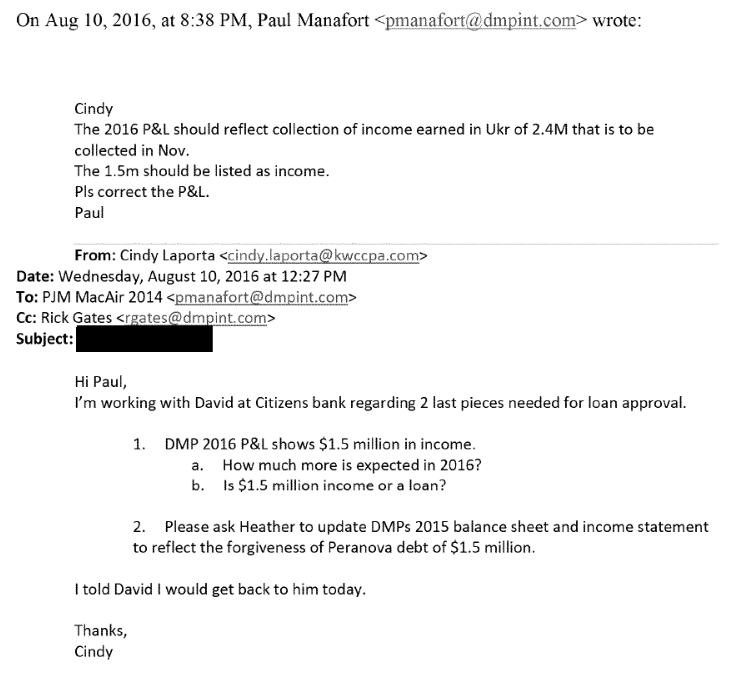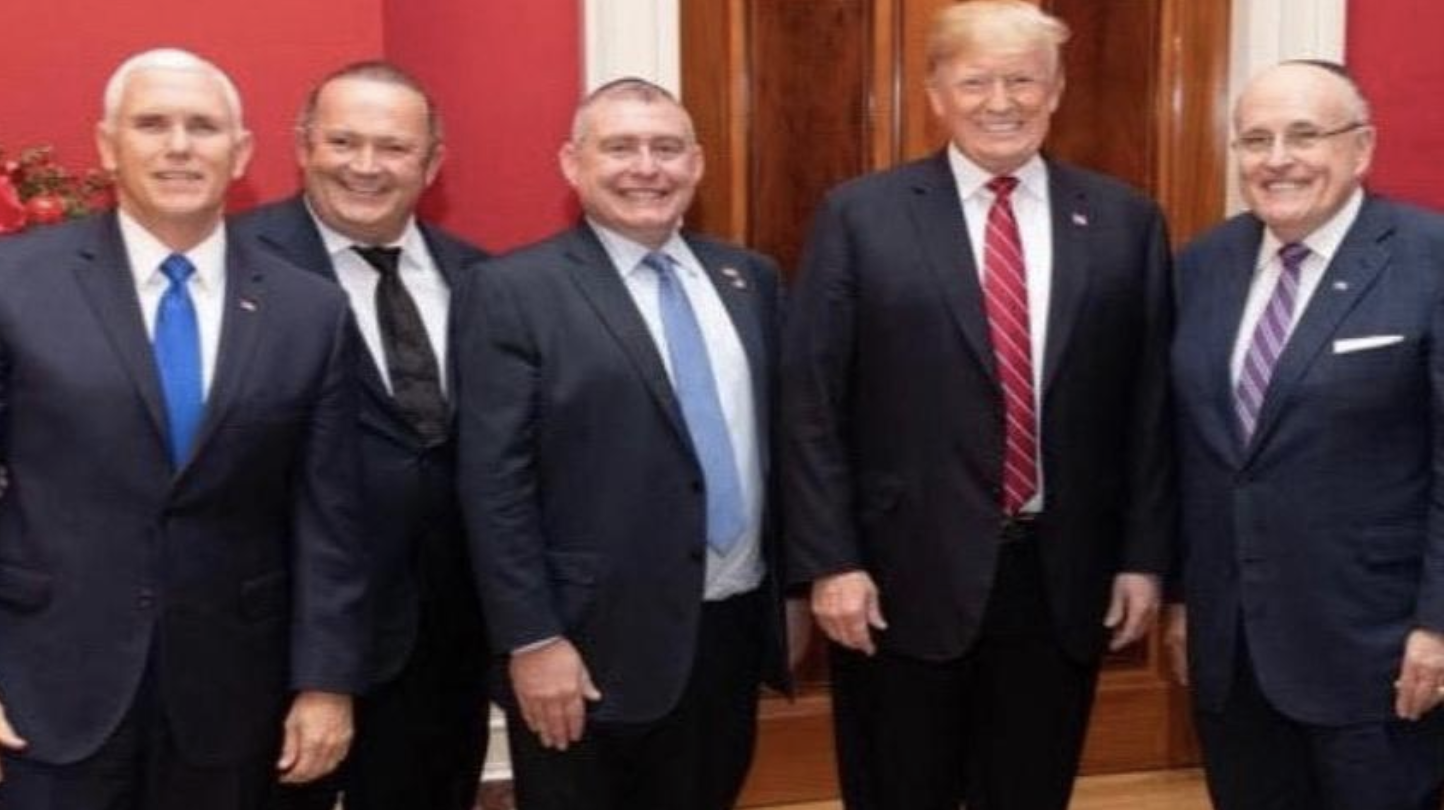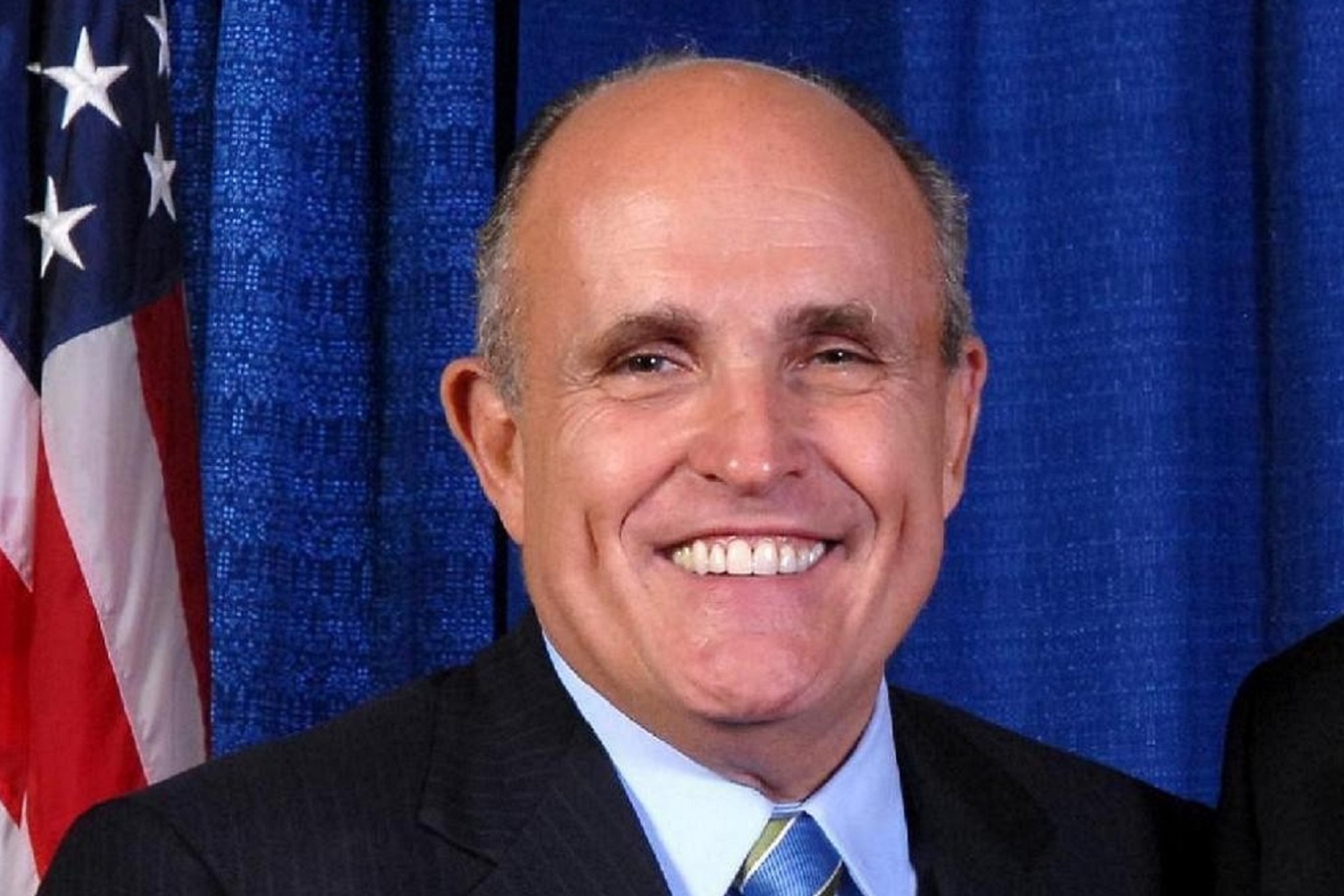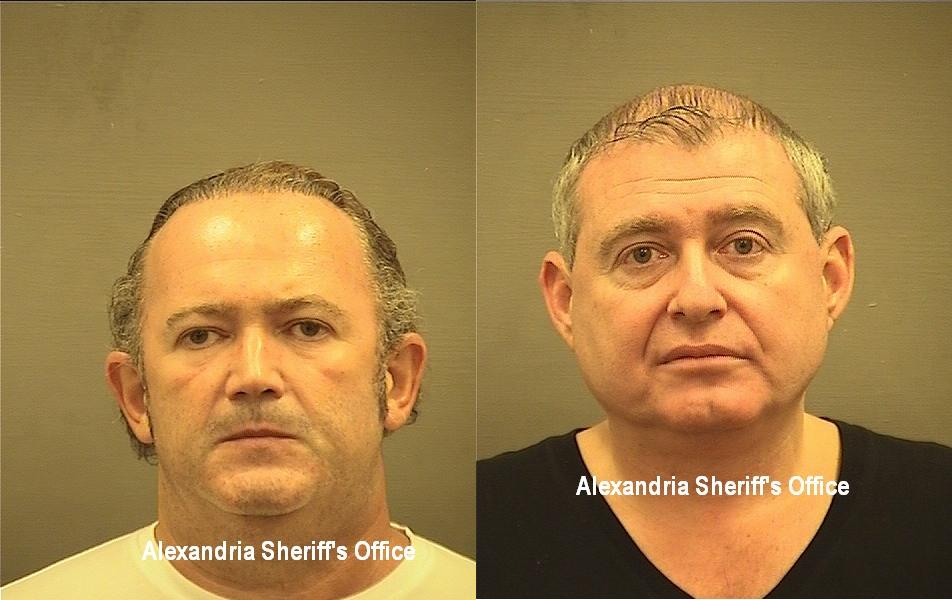Judge Paul Oetken Eliminates Lev Parnas’ Last Attempt to Weaponize the Former President’s Former Lawyer in His Defense
Yesterday, Judge Paul Oetken ruled on all but one of the pre-trial motions in the Lev Parnas trial(s). The rulings have the effect of neutralizing any benefit that Parnas might have tried to get from his association with the former President’s former lawyer, Rudy Giuliani. But the order also appears against the background of the Special Master review in Rudy’s own case in interesting ways, and in ways that might change Parnas’ incentives.
The only request that Oetken granted was a request to sever the campaign finance charges — what Oetken describes as the Straw Donor scheme (funneling money to pro-Trump entities) and the Foreign Donor scheme (funneling Russian money to pro-marijuana politicians).
The “Straw Donor Scheme” (Parnas and [Igor] Fruman): First, the Government alleges that Parnas and Fruman conspired in 2018 to disguise and falsely report the source of donations to political action committees and campaigns, thereby evading federal contribution limits, in order to promote their nascent energy business venture and boost Parnas’s profile.
The “Foreign Donor Scheme” (Parnas, Fruman, and [Andrey] Kukushkin): During the same time period, Parnas and Fruman were working with Kukushkin on a separate business venture: a nascent cannabis business. Among their activities was making political contributions to candidates in states where they intended to seek licenses to operate a cannabis business. The Government alleges that Parnas, Fruman, and Kukushkin conspired to disguise a one-million-dollar contribution from a Russian national to evade the prohibition on political contributions from foreign nationals.
Oetken will sever those charges from the Fraud Guarantee charges, which currently involve only Parnas (and in which David Correia already pled guilty and cooperated with the government).
The “Fraud Guarantee Scheme” (Parnas): Parnas was also working with David Correia on pitching another business venture to be called “Fraud Guarantee.” The Government alleges that Parnas and Correia defrauded several investors in Fraud Guarantee by making material misrepresentations to them, including about the business’s funding and how its funds were being used.
That puts the trial involving Rudy, in which only Parnas is currently charged, after the non-Rudy trial, which is due to start on October 4.
Then, in two steps, Oetken denied Parnas’ bid to claim to 1) get access to Rudy and Victoria Toensing’s seized content to prove that 2) he was selectively prosecuted to protect the former President. Mind you, Parnas requested those in reverse order (indeed, in its response to Parnas on the selective prosecution claim, the government claimed that some of what he was asking for might be privileged). So Oetken denied those requests in order, first by ruling that Parnas hadn’t provided proof of either basis to claim selective prosecution, that he was discriminated against or that it was done out of some discriminatory purpose.
Parnas does not meet either required prong. Regarding discriminatory effect, Parnas fails to show that others who are similarly situated have not been prosecuted. This requires showing that individuals outside the protected class committed roughly the same crime in roughly the same circumstances but were not prosecuted. See United States v. Lewis, 517 F.3d 20, 27 (1st Cir. 2008). However, individuals similarly situated to Parnas were prosecuted along with Parnas, including two who share his national origin (Fruman and Kukushkin) and one (Correia) who does not. Moreover, while Parnas was subject to a Congressional demand for information at the time of his arrest, Fruman was as well, and while Parnas complied with that demand several months later, Fruman did not.
Regarding discriminatory purpose, Parnas’s argument is not just speculative, but implausible. Citing Twitter posts, Parnas argues that “[m]illions of Americans already believe that [former] Attorney General Barr may have interfered in some aspect of Mr. Parnas’s investigation and prosecution, based on the public record.” Parnas asserts that his indictment and arrest were a means to thwart Parnas’s testimony in the impeachment inquiry of former President Donald Trump. But the theorizing of Twitters users, and Parnas’s own speculation, do not constitute evidence of an improperly motivated prosecution. Indeed, Parnas was, by his own admission, not cooperating with the Congressional demand as of the day of his indictment. To accept Parnas’s conspiracy theory, the Government would have to have known that, one day in the future, Parnas would change his mind and decide to cooperate with the Congressional demand. Furthermore, the Government’s conduct since Parnas’s arrest undermines his theory. The Government consented to allowing Parnas to produce documents to the House impeachment committee, and it has not objected to Parnas’s media interviews and television appearances.
It’s actually not a conspiracy theory that Parnas was prosecuted in the way he was partly as an attempt to shut him up, though when Parnas first argued this, he claimed he was prosecuted to prevent him from testifying in the Former’s first impeachment which, as Oetken notes (and I noted in the past) doesn’t accord with the known facts. And Parnas chose not to present some of the most damning evidence of this, probably because it would incriminate himself.
In any case, having denied Parnas’ selective prosecution claim, in the very next section, Oetken denies Parnas’ request (in which the other defendants joined) to get access to the Rudy-Toensing content, citing his decision rejecting Parnas’ selective prosecution claim.
The Giuliani and Toensing warrants do not authorize the Government to search for evidence related to this case, nor do any of the accounts or devices involved belong to Defendants. The Government represents that it will not use any of the evidence seized pursuant to these warrants at trial in this case. Thus, the only bases for discovery of these materials would be (1) if they contain statements by Defendants that are “relevant” to the charges in this case, or (2) if they are “material” to preparing a defense to the Government’s case.
First, Defendants contend that the search warrant returns are likely to contain communications between Giuliani and Toensing and Parnas. But such communications are likely to have already been produced from Parnas’s and Fruman’s own accounts and devices, and Defendants have not shown that they are related to the charged case, material, and noncumulative.
Second, Parnas suggests that the warrant returns may contain evidence relevant to his selective prosecution claim. The Court has already rejected that claim, and nothing in Parnas’s letter alters the fact that Parnas has failed to make the requisite showing for such a claim.
This is unsurprising on a matter of law, but several points about it are worth closer focus: First, Oetken notes that the government can only access that information seized from Rudy and Toensing that relates to the crimes for which probable cause was laid out in the warrants, that is, Rudy’s influence-peddling, which also implicates Parnas. By description, those warrants do not include any claim that Rudy, with Parnas, attempted to obstruct the impeachment inquiry by hiding details of the influence-peddling scheme. So the warrants would not have provided access to the content of most interest to Parnas, content he’s pretty sure exists or existed.
Oetken is silent about whether any warrants have been obtained since the government finally got access to the first tranche of material seized in 2019.
Oetken then claims that if useful communications existed, they would not have been turned over in the warrant returns served on Parnas and Fruman’s own devices, because those warrants obtained permission for evidence of different crimes. Except there’s very good reason to believe that’s not true: that’s because, by October 21, 2019, the government and Oetken both know, Parnas attempted to delete his own iCloud account. Parnas did not succeed in that attempt — the government had already gotten a preservation order with Apple. But that doesn’t mean there isn’t some other content he once had that he thinks Rudy or Toensing may have retained. Indeed, in his request for the information, Parnas asserted the information seized from Rudy and Toensing likely included conversations — conversations that may have been deleted — about how to address their prior relationships and the unfolding investigation.
The seized evidence will also likely contain a number and variety of communications between Giuliani and Toensing and Parnas that are directly discoverable under Fed. R. Crim. P. 16, evidence of any conversations between Giuliani, Toensing, and others, including Parnas, that may have been deleted, communications between Giuliani, Toensing and others about the defendants and how to address their prior relationships, the arrests, and the unfolding investigation.
Those materials might help Parnas describe why John Dowd attempted to assert an interlocked attorney-client relationship that ultimately put the then-President in a joint defense agreement with at least one pretty sketchy Ukrainian, which in turn might explain how this investigation proceeded as it did (including why it didn’t expand into Rudy’s dalliance with a different Ukrainian agent of Russia). But Parnas as much as describes it as an obstruction attempt — an obstruction attempt he, when he attempted to delete his own iCloud account, would have been a part of before he wasn’t a part of it anymore. Given Rudy’s descriptions of the crimes covered by the warrants, that attempt was not a part of the warrants originally obtained on Rudy and Toensing in 2019, and it wasn’t a part of the warrants obtained in April, but given the new evidence (Parnas’ own declaration), and given that Jeffrey Rosen is no longer around to obstruct investigations into the Former, SDNY (or EDNY) could ask for new warrants for permission to search for evidence of that crime.
If SDNY asked for such warrants, Oetken would have been the one they would ask.
Meanwhile, a month after Special Master Barbara Jones first described how she would proceed in reviewing Rudy and Toensing’s seized materials, including her promise to, “provide the Court with a timeline for concluding the privilege review once she better understands the volume of the materials to be reviewed,” she has made no public reports. Given the pace at which she worked to review Michael Cohen’s content in 2018, in which her first report was issued 38 days after she was appointed, we should expect a report from her in the near future (the same 38 days would have been July 13, though COVID has slowed everything down).
Meanwhile, yesterday’s ruling took a curious approach to privilege issues. One thing Kukushkin complained about was that, by choosing to share information with the impeachment inquiry, Parnas shared information in which they had an attorney-client privilege. Oetken dismissed this concern (and Kukushkin’s larger bid to sever his trial from Parnas’) in part by relying on prosecutors’ representation that they would not rely on privileged material
Kukushkin also argues that because Parnas waived the attorney-client privilege by providing certain materials to Congress, the Government may be able to introduce privileged materials against Parnas, prejudicing Kukushkin. This argument is speculative, and the Government disavows any intent to seek to offer privileged materials.
Finally, all the defendants complained that a key email used against them in the superseding indictment was privileged, and argued that that, plus all fruit of that (a number of other search warrants), should be thrown out.
Defendants assert that an email, quoted in several search warrant applications, is protected by the attorney-client privilege and that, as a result, the returns from the search warrants should be suppressed and the Superseding Indictment itself should be dismissed. This issue will be addressed in a separate opinion and order.
This is a different attorney-client dispute, not the claims of privilege that John Dowd invented to protect a cover-up in 2019. The government argued that it was not privileged, but even if it were it would be covered by the crime-fraud exception. “[T]he crime-fraud exception applies because the email furthered a criminal effort by the defendants to utilize attorneys to structure a new business to conceal the involvement of a foreign national.” But Oetken, who presumably approved of those allegedly poisoned fruit warrants like he approved of the warrants against Rudy and Toensing, has deferred it to a separate opinion.
Oetken knows far more about the substance of these attorney-client disputes, and this is actually the third attempt in this case where a defendant attempted to hide evidence by invoking privilege. In the third, prosecutors successfully argued that materials pre-existing attorney-client privilege are not privileged.
But given all these claims of attorney-client privilege he has been watching, it’s likely he’s unimpressed with the third one.




